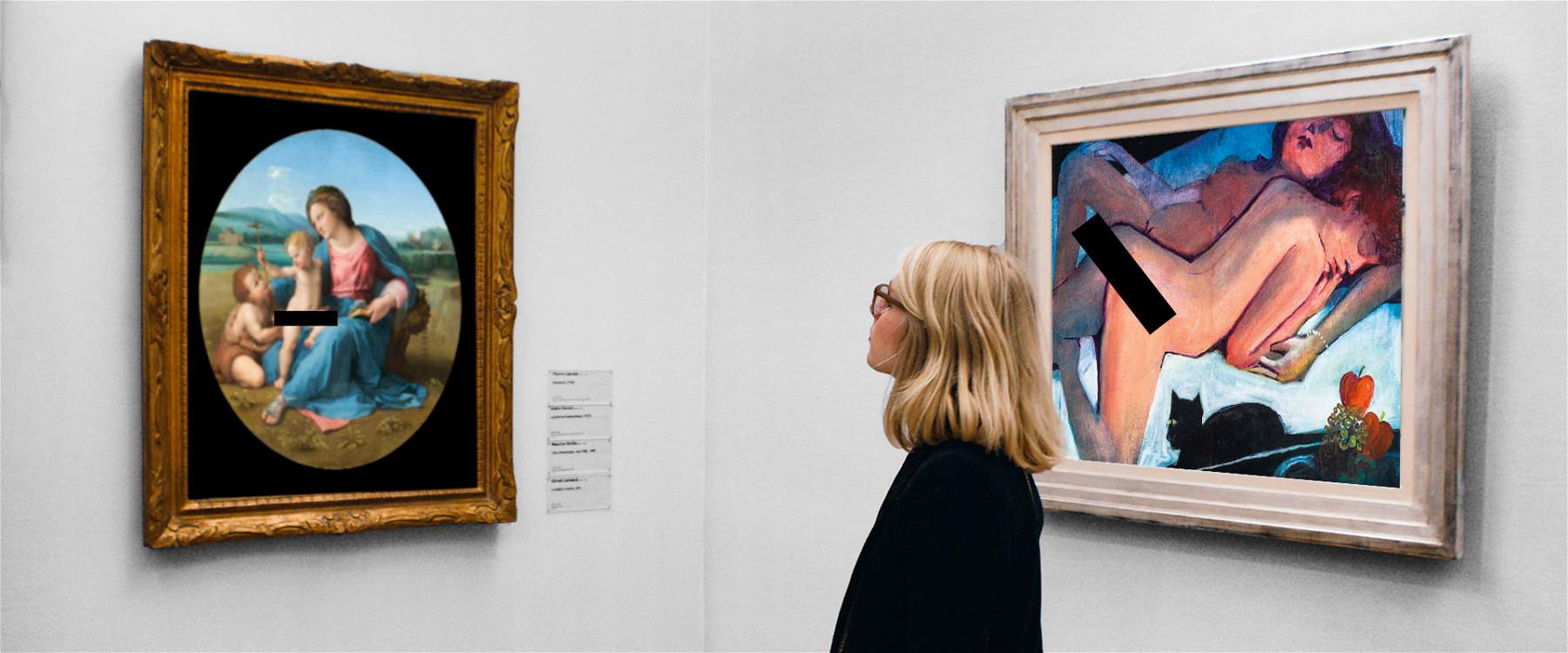Birth of #StopBanningArt, site to collect Facebook's censorship of art and open dialogue
A #StopBanningArt(www.stopbanningart.it) was unveiled this morning as part of the 2021 edition of the Florence Biennale, an initiative to open a dialogue with Facebook to spare pages dealing with art, culture and the promotion of cultural heritage from prior censorship. The idea came about after the Florence Biennale Facebook page was deleted from Mark Zuckerberg’s social networking site, without any possibility of appeal at the moment, following the publication of an image of a work by Spanish artist Gloria Marco Munuera, The Song of the Milky Way (a photograph from 2021) in which a breast is seen from which a drop of milk is gushing out. The site collects images of artworks that have been censored over the years at museums, magazines, institutions, and artists, while at the same time intending to encourage work that leads to the improvement of the social.
“Facebook’s algorithm,” reads #StopBanningArt, “has always had an adversarial relationship with artworks, and many of them have been censored because they were mistaken for pornographic images. When Facebook’s algorithm mistakes a work of art for a pornographic image immediately Facebook triggers very severe penalties against the page compromising the work of those who do information, promotion and cultural dissemination.” What is the goal behind the initiative? “With the StopBanningArt initiative,” the statement of intent reads, “we don’t want to change Facebook’s rules, or suggest to the social what to do, or even worse put barriers between culture and Facebook: we want to open a dialogue with the platform so that those who work in culture can be able to do so without anxiety and in complete peace of mind. We are therefore asking Facebook to prepare lists of recognized institutional subjects to whom we will disapply prior censorship via algorithm. While waiting for this tool, we ask that Facebook give agents responding to chat and phone support the power to intervene promptly and in person to solve problems of this kind, without delegating the task (as is the case now) to the ’internal team’ that is overburdened with requests, has very long response times, and above all has more difficult tasks (such as checking hate messages, solicitations, and so on) than checking nude images to see if they are paintings or real people. However, we do not want to be above the rules: any misbehavior will be appropriately reported by users, and checked by human operators. Culture communities are sensitive to the topic and have proven that they are against hate messages or violent content, so they are ready to report them quickly.”
The platform is open to membership from individuals who wish to lend their support to the campaign. It is therefore possible to submit your report through a special form where you indicate the censored work and leave your own message. The goal, to gather as many endorsements as possible to open a discussion with Facebook. In the meantime, it is interesting to see #StopBanningArt as a kind of virtual museum of... social censorship of art.
 |
| Birth of #StopBanningArt, site to collect Facebook's censorship of art and open dialogue |
Warning: the translation into English of the original Italian article was created using automatic tools. We undertake to review all articles, but we do not guarantee the total absence of inaccuracies in the translation due to the program. You can find the original by clicking on the ITA button. If you find any mistake,please contact us.





























